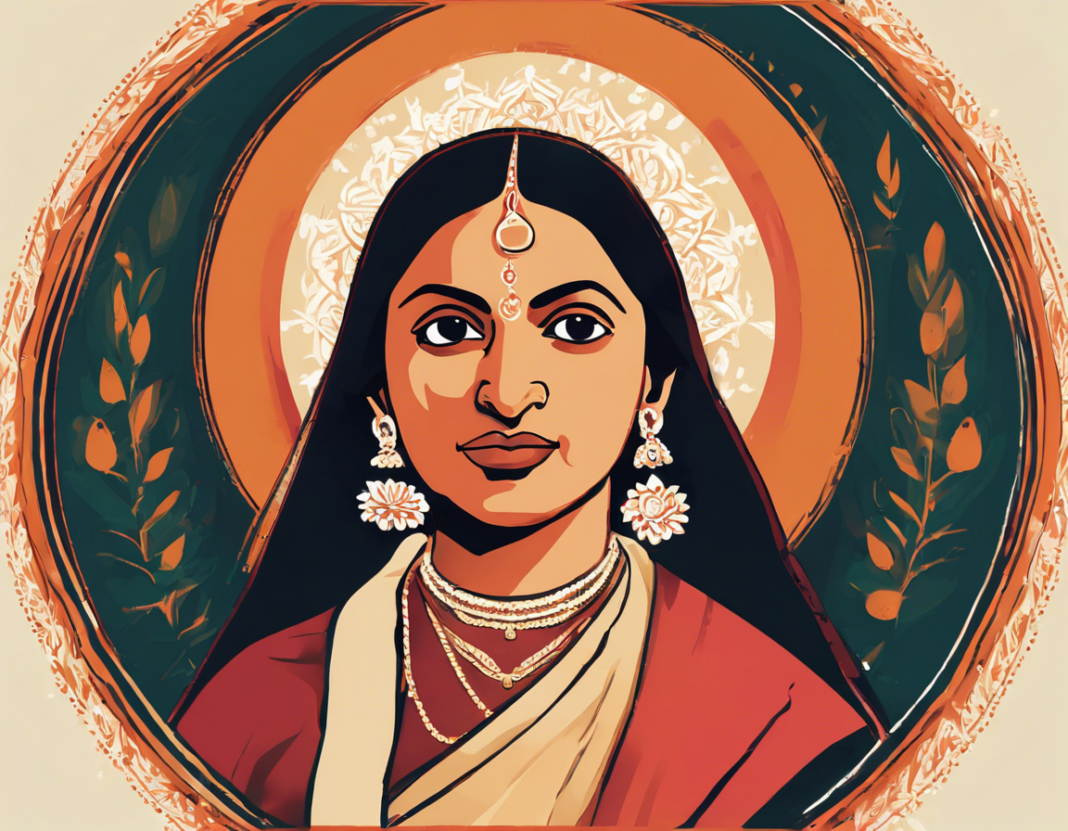Introduction
Savitribai Phule, often hailed as the First Female Teacher of India, was more than just an educator. She was a social reformer, a poet, and a revolutionary who dedicated her life to the upliftment of women and the oppressed classes in Indian society during the 19th century. Born on January 3, 1831, in Maharashtra, Savitribai Phule, along with her husband Jyotirao Phule, played a pivotal role in challenging the existing social norms and fighting for the rights of the marginalized communities.
Early Life and Education
Savitribai Phule was born into a family of farmers in Naigaon, Maharashtra. Despite facing societal obstacles that denied education to girls, Savitribai showed a keen interest in learning. She received her early education from a local missionary school, which laid the foundation for her commitment to education and social reform.
Marriage to Jyotirao Phule and the Beginnings of Social Reform
At the age of nine, Savitribai was married to Jyotirao Phule, who was a progressive thinker and social reformer. Jyotirao recognized Savitribai’s intellect and encouraged her to pursue further education. Together, they embarked on a journey to challenge the prevailing orthodoxy and work towards promoting education and social equality.
Pioneering Efforts in Women’s Education
Savitribai Phule is best known for her pioneering efforts in promoting women’s education in India. In 1848, she, along with her husband, established the first school for girls in Pune, breaking centuries-old traditions that restricted women’s access to education. Despite facing opposition and hostility from conservative elements, Savitribai remained undeterred in her mission to empower women through education.
Empowering the Oppressed Classes
Savitribai and Jyotirao Phule were staunch advocates for the rights of the oppressed classes, including Dalits and lower-caste communities. They opened several schools for children from these marginalized groups, providing them with opportunities for education and self-improvement. Savitribai’s dedication to the cause of social justice earned her the title of “Mother of Indian Feminism” and a revered place in the annals of Indian history.
Legacy and Impact
Savitribai Phule’s legacy continues to inspire generations of activists and social reformers in India and beyond. Her relentless pursuit of equality, justice, and education serves as a beacon of hope for all those fighting against discrimination and oppression. From the establishment of schools to the empowerment of women, Savitribai’s contribution to the social reform movement in India remains unparalleled.
Honoring Savitribai Phule Today
In recognition of her invaluable contributions to society, various institutions and organizations in India celebrate Savitribai Phule’s birth anniversary on January 3rd every year. From educational seminars to cultural events, these commemorations serve as a reminder of her vision and values. Additionally, schools and colleges across the country pay tribute to her pioneering spirit by organizing lectures and discussions on gender equality and social justice.
Challenges and Opportunities Ahead
While much progress has been made in the field of education and social reform since Savitribai Phule’s time, significant challenges persist. Gender disparities in education, violence against women, and systemic discrimination continue to hinder the realization of her vision of an equal and just society. However, the spirit of Savitribai Phule lives on in the countless individuals and organizations working tirelessly to address these issues and uphold her legacy.
Conclusion
Savitribai Phule’s remarkable journey from a young girl denied education to the First Female Teacher of India is a testament to the power of determination, compassion, and courage. Her dedication to the cause of education and social reform transformed the lives of countless individuals and paved the way for a more inclusive and equitable society. As we commemorate her legacy, let us draw inspiration from her unwavering commitment to justice and continue the fight for a better future for all.
Frequently Asked Questions (FAQs):
1. What were Savitribai Phule’s major contributions to Indian society?
Savitribai Phule was a trailblazer in promoting women’s education, establishing the first school for girls in India, and advocating for the rights of the oppressed classes, including Dalits and lower-caste communities.
2. How did Savitribai Phule overcome societal barriers to become a teacher?
Despite facing societal norms that denied education to women, Savitribai pursued her passion for learning and eventually became India’s first female teacher with the support of her husband, Jyotirao Phule.
3. What is Savitribai Phule’s legacy in modern India?
Savitribai Phule’s legacy continues to inspire social reformers and activists in India, serving as a reminder of the ongoing struggles for gender equality, social justice, and education.
4. How is Savitribai Phule honored in contemporary Indian society?
Savitribai Phule is commemorated on her birth anniversary with various events, including educational seminars, cultural programs, and lectures on gender equality and social justice.
5. What challenges remain in achieving Savitribai Phule’s vision of a just society?
Gender disparities in education, violence against women, and systemic discrimination are some of the challenges that continue to hinder the realization of Savitribai Phule’s vision for a more inclusive and equitable society.

